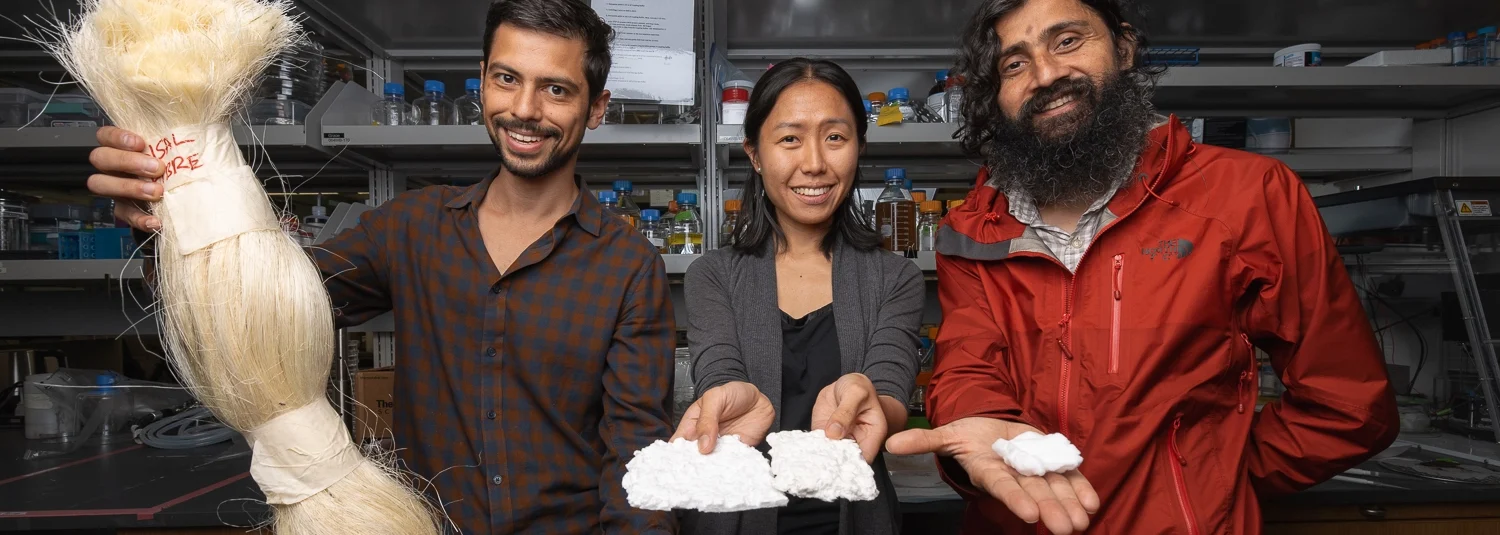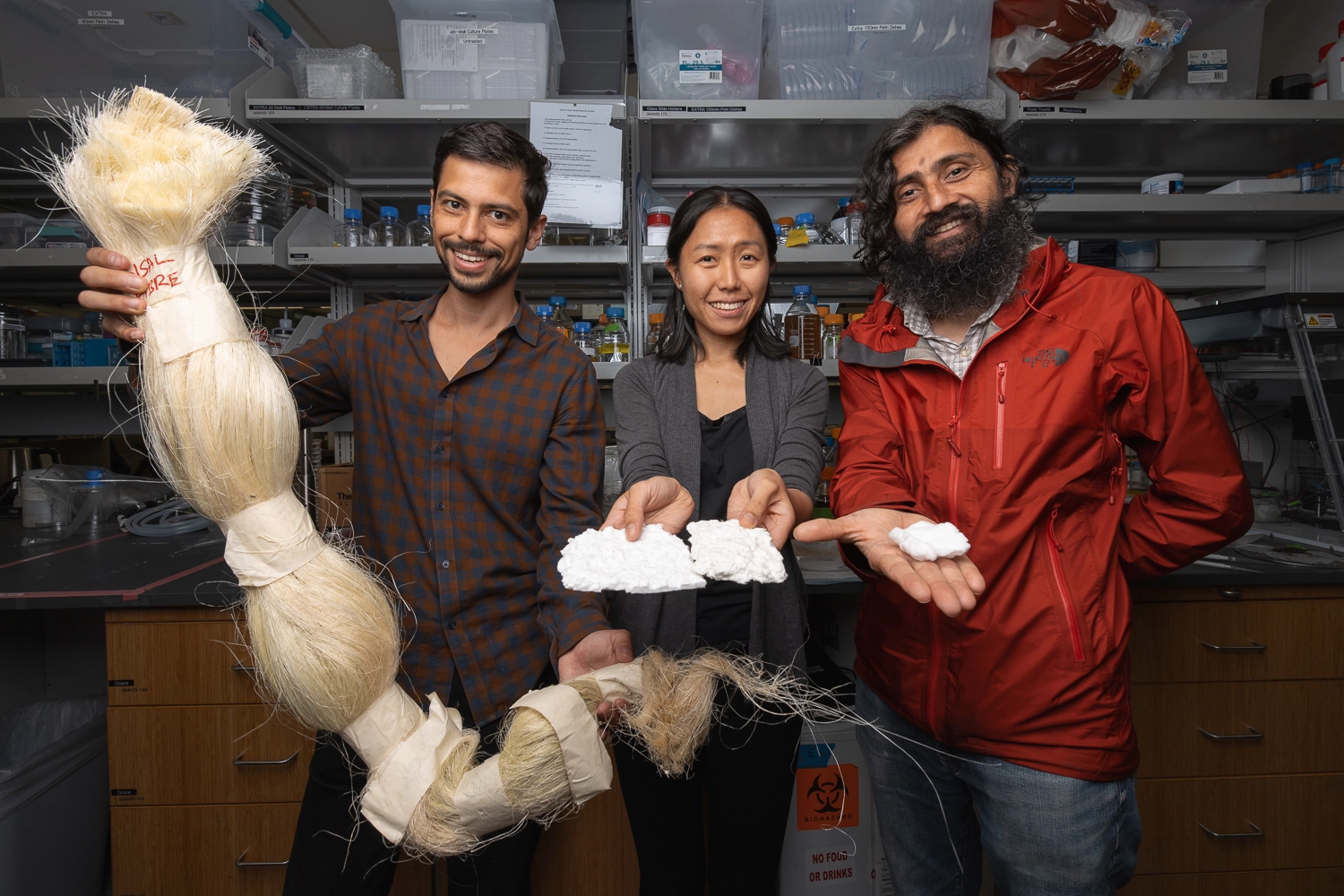Published: 12/01/2023
For people who menstruate, access to affordable and hygienic period products is a necessity. A lack of pads, tampons, menstrual cups, or safe and hygienic facilities to use and dispose of them can affect attendance at work and school or participation in other aspects of daily life. Yet studies estimate that 500 million people – women, girls, and transgender and nonbinary individuals – don’t have access to the facilities and products they need to manage their period.
Researchers at Stanford, including Global Health Core Leader Dr. Manu Prakash, have designed an open-source process for turning sisal fibers into absorbent material for menstrual pads, creating an opportunity for the local, sustainable manufacture of hygiene products that many communities need.
Read the full story by LAURA CASTAÑÓN.
Photo credit: Andrew Brodhead, Stanford

